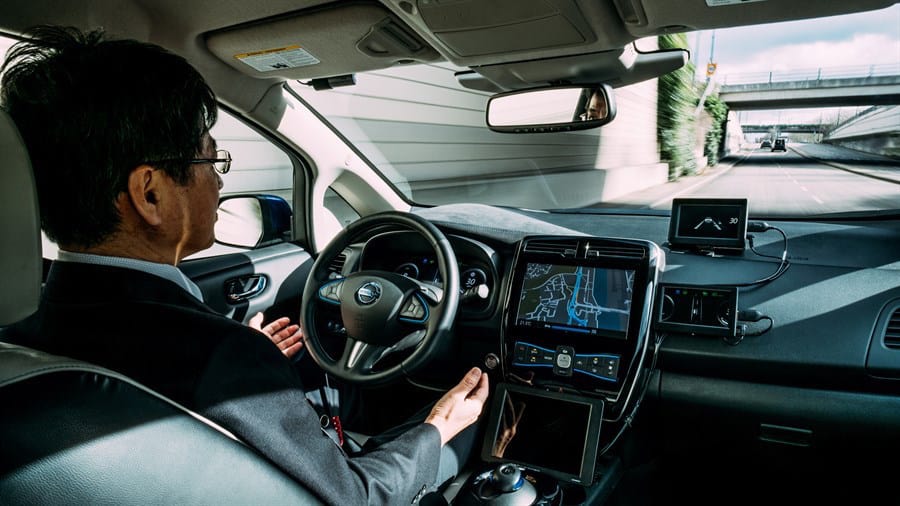 Jason Ford, news editor
Jason Ford, news editor
Cenex’s low carbon vehicle showcase is set for its 10th outing this week with LCV2017 opening its doors at Millbrook, Bedfordshire on September 6&7.
Encompassing a technology exhibition, numerous ride and drive opportunities, and a comprehensive seminar programme, LCV2017 is designed to provide a technology showcase and increase organisations’ awareness and confidence in low carbon solutions for their vehicles and fleet operations.
Confirmed exhibitors include the Centre for Connected and Autonomous Vehicles (CCAV), a joint BEIS/DfT policy unit that will be showcasing some of the connected and autonomous vehicle (CAVs) technologies currently in development. These include the £8m GATEway (Greenwich Automated Transport Environment) project and DRIVEN, a consortium set to deploy a fleet of autonomous vehicles in urban areas and on motorways, culminating in multiple end-to-end journeys between London and Oxford. Led by Oxbotica and funded by InnovateUK and industry, the project’s fleet will run at Level 4 autonomy, performing all safety-critical driving functions with zero-passenger occupancy.

On August 25, 2017 The Engineer reported on the announcement from DfT that 2018 will see the start of road trials of self-driving lorry platoons. Led by the Transport Research Laboratory, the trials will see two or more vehicles connected with ‘vehicle to-vehicle communication’, allowing them to effectively communicate with each other and operate as a single unit.
Earlier in the summer, The Engineer looked at how groceries were being delivered as part of the GATEway project, and more recently Chris Pickering examined the ways in which advances in artificial intelligence could help bring about truly autonomous vehicles.
This author’s view on vehicle autonomy hasn’t moved on much since October 2015 but some interesting stats from a recent survey indicate that the public might finally be warming to autonomous vehicles, albeit with caveats that should provoke further debate on what we want from this burgeoning technology.
IMechE conducted a poll 2,053 members of the public regarding driverless cars and found that 66 per cent would be uncomfortable travelling in a driverless car at 70mph, which is a marked change from an ICM survey in 2014 that found 56 per cent of respondents reluctant to relinquish the controls of their car, compared to just 20 per cent of those who would.
IMechE’s latest survey found also that 45 per cent of 25-36 year olds would be comfortable in a 70mph driverless car, compared to 13 per cent for 65-74 year olds and 8 per cent for the over 75s. According to IMechE, women tended to be more cautious about the technology, with 72 per cent saying they would be uncomfortable compared to 60 per cent for men. Despite 90 per cent of UK road accidents being caused by driver error, 50 per cent of those surveyed think humans are better drivers than computers/cars.
There are those who argue that vehicle autonomy can help give back independence to those no longer able to drive, but the survey points to a reluctance from the public to allow people who are sight-impaired to be the sole occupant of a driverless car. Less than a quarter (23 per cent) thought this an acceptable use of a driverless car, and just over a tenth (12 per cent) agreed that an intoxicated person could be responsible for a driverless car.
In the space of a few years we’ve moved from not trusting driverless to being wary of travelling at speed in such vehicles, which is a move forward to acceptance but questions remain over autonomy’s utility. During a journey, are we to remain alert and sober in order to take control of the vehicle if the need arises? If so, shouldn’t we just persist with driving manually, albeit in a more controlled, considerate and safe way? Or do we want to step into a vehicle that assumes full control of our safety and lets us work – for example – on our way to the office? The car that takes you home after an evening in the pub, or a car that liberates the elderly and less able must surely the aim of OEMs, but that's assuming persistent questions of liability can be resolved.
What do you think? Let us know in Comments below.











‘Archaic rules’ torn up to green light new nuclear
Lack of data about windpower being cheaper than nuclear was, I felt, the question that you replied to. and as the context is energy security it would...